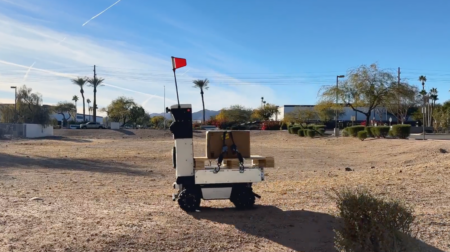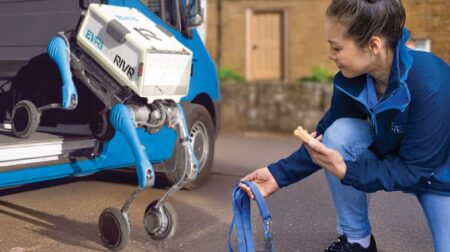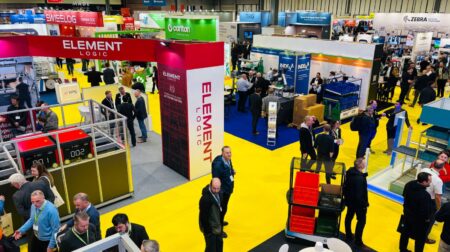ABB Robotics has collaborated with two artists to create the world’s first robot-painted art car using its PixelPaint technology to recreate a monochromatic design and tri-coloured geometrical patterns without human intervention.
Equipped with 1,000 nozzles in the printer head, ABB’s IRB 5500 paint robots were able to complete the complex artworks in less than 30 minutes. The PixelPaint technology demonstrated precision and speed, capturing detail that would be impossible to achieve by hand, ABB said.
Sami Atiya, president of ABB’s robotics & discrete automation business area, said: “ABB’s PixelPaint technology is more than an evolution – it is a revolution. It’s a shining example of how robotic automation and our RobotStudio software can not only pave the way for more sustainable manufacturing but can also perfectly replicate delicate pieces of art that celebrate the originality and beauty of the human spirit.
“At a time when consumers want more customised products, PixelPaint is a game changer and allows any design to be replicated in a manner that is both sustainable and affordable.”
ABB’s PixelPaint technology has been designed to reflect the growing demand for sustainable personalisation in the automotive industry, particularly in exterior paint. Multi-coloured car painting has traditionally been a laborious and costly process involving multiple stages of masking and unmasking, but ABB said its technology allows for a detailed, colourful, and exact replication of any design.
Carefully controlled, the paint can be quickly applied in a single application. This automation of the paint process aims to open the door for specialised and personalised designs to the automotive market.
Furthermore, PixelPaint also works to enhance manufacturing sustainability, removing the need for masking materials and extra ventilation, which lowers emissions while saving water and energy.
Coordinated by the firm’s RobotStudio software, the paint head tracks very closely to the vehicle body to ensure 100% of the paint is applied to the car with no airborne misting. Different paint colours are applied quickly, with the product only running through the paint shop once. For car manufacturers, this can halve the production time and reduce costs by up to 60%.







